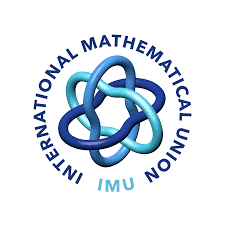
Before answering the question, let us review the situation in Europe one hundred years ago. The major European powers had triggered a devastating war, which they had also exported to other parts of the world, leading to the First World War (then called the Great War). Post-wars are often dramatic in their consequences, both silent and muted. In the field of science, the post-war period of the Great War saw the birth of a novelty in the universal history of revenge on the vanquished: the exclusion policy.
At the end of the war, the countries that had won the war decided to put an end to the leading role played by German scientists in many fields. To this end, the “International Research Council”, IRC, was created, its official aim was to promote science, but its real intention was to exclude German scientists (and those from the countries that had fought alongside Germany, the Austrians, Hungarians and Bulgarians) from international scientific contact. New scientific unions were created (in Chemistry, Astronomy, Biology, etc.) in which neither Germany nor its former allies were allowed to be present. Nor were they allowed to attend international scientific congresses. This was the “exclusion policy”.
In mathematics, this new “scientific” policy took the form of an international congress in Strasbourg in 1920, where the Union Internationale Mathématique, UIM, was founded. German mathematicians were not allowed to attend the congress, nor were they allowed to belong to the Union.
The UIM is the institution that celebrates its 100th anniversary this year. As we have seen, it did not have a very honourable birth. Nor were its first twelve years of life exemplary or uneventful. The reason is that from the very beginning, large groups of mathematicians rebelled against the exclusion policy, which was perceived as an arbitrary political imposition that interfered with scientific relations. Prominent among them were the English mathematician G.H. Hardy and the Swedish mathematician G. Mittag-Leffler. The American Mathematical Society, AMS, was also very combative against the exclusion policy. The groups in favour of the exclusion policy became increasingly isolated, with its first and last advocate being the French mathematician Émile Picard (whose family had been hit hard by the war).
The end of the UIM and the exclusion policy in mathematics began at the international congress of mathematicians held in Bologna in 1928, where, against the prohibition of the IRC and the UMI, many German mathematicians, led by the great German mathematician David Hilbert, were invited and attended. Hilbert’s entrance into the room where the opening ceremony of the congress was held is legendary, according to his biographer Constance Reid: “For a few minutes there was only silence in the room. Then, spontaneously, everyone in the room rose to their feet and began to applaud”. At the next congress, in Zurich in 1932, it was decided to dissolve the Union Internationale Mathématique, a decision that was certified four years later at the International Congress in Oslo in 1936.
The Union Internationale Mathématique thus has the dishonourable merit of being the only scientific union dissolved by the abandonment of its members. The honour goes to the mathematicians who did not agree to maintain an institution based on revanchism.
The story does not end there, for mathematics had a long tradition of international cooperation (which is at its very core), which could not be cut short. As Mittag-Leffler said: “Mathematics is the only science which is the least national”. As early as 1897 the mathematicians of the world met in the magnificent quadrennial congresses known as the International Congress of Mathematicians, ICM. Therefore, after the Second World War, with a determined political intention to avoid the dramatic consequences of the revanchism of the post-war period of the First World War, it was decided to re-found the international union in mathematics, based, this time, on an open internationalist ideology. Thus, in Rome in 1952, the International Mathematical Union, IMU, was created, from which no country in the world was excluded.
It is in fact the centenary of this institution, which is not really a centenary, that it celebrates this year 2020 with a congress in Strasbourg. (Rescheduled to 27-28 September 2021 for easy-to-guess reasons).
G. P. Curbera, Mathematicians of the world: Unite! The International Congress of Mathematicians: a human endeavor, A K Peters, 2009, Wellesley, MA.
This book is freely available on the website of the International Mathematical Union.

Leave a Reply